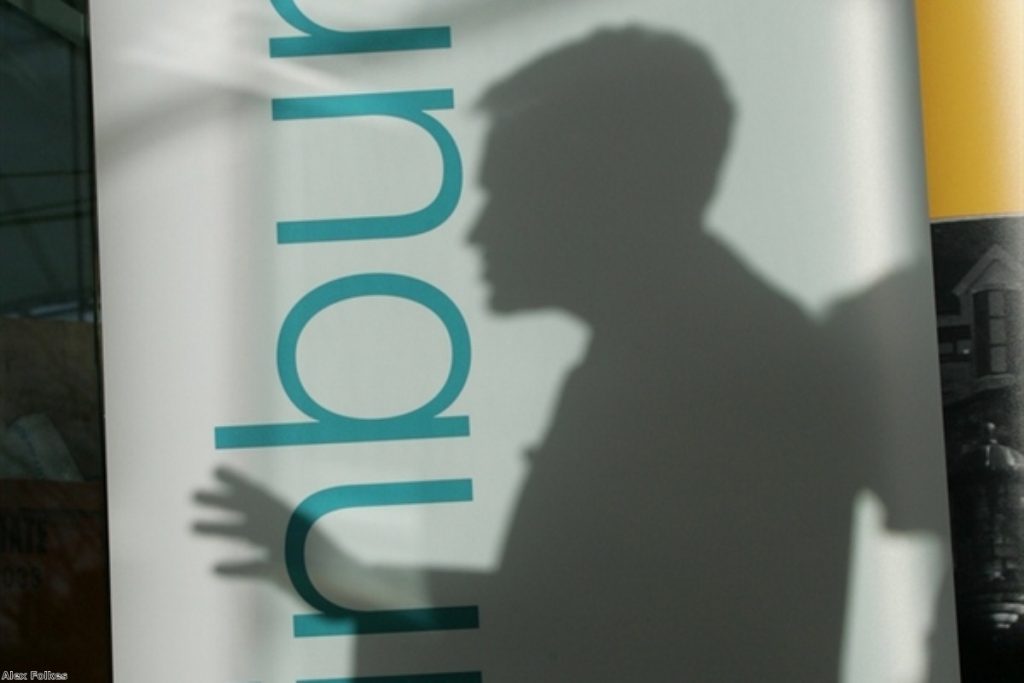Sketch: The Iron Clegg’s majesty wavers
It took nearly half an hour, but the opposition finally succeeded in snapping Nick Clegg’s composure.
The deputy prime minister had, we thought, become a past master at the art of retaining the sang froid much coveted by party leaders. It is an essential characteristic of the job that you should remain unflappable in the face of a hostile, angry mob. Clegg will confront that challenge when his parliamentary party next meets. For now, Labour MPs provided a rather stern warm-up act.
Labour’s attitude to the parliamentary voting system and constituencies bill was summed up by former culture secretary Ben Bradshaw. MPs are “getting FED UP!” he roared petulantly, his perfectly chiselled features quivering with passion. The bill has bundled plans to reduce the Commons’ size from 650 to 600 MPs with the mechanisms setting up the electoral reform referendum set for this May. Labour MPs don’t like cutting the number of MPs, or equalising constituency sizes, because their party will lose out. It’s “gerrymandering”, as Bradshaw put it.


He was one of many, as the opposition whined and moaned about all aspects of Clegg’s portfolio. Sadiq Khan said Clegg was getting a “reputation as a habitual breaker of promises”. Chris Bryant said the deputy prime minister “gets into a terrible lather whenever anyone has the temerity to contradict him”. Even Harriet Harman got in on the act, popping up to complain about the “huge threat” Clegg posed to the NHS.
The leader of the Liberal Democrats appeared implacable in response. He pointed out that Labour is the only party which wants to cut the NHS’ budget. He gave some replies with one hand in his pocket, as if in rehearsal for his future career giving after-dinner speeches. He mocked the Labour peers currently doing their best to scupper his electoral reform bill, observing that “virtually monosyllabic” ex-Labour MPs had become so “loquacious” now they are in the Lords.
Despite the scorn, that last answer had touched a raw nerve. Clegg’s political future rests on the alternative vote referendum taking place this May. If Labour manage to prevent the bill receiving royal assent by February 16th, however, it won’t be able to take place. Lib Dem support for the coalition, the stability of the whole government and (most importantly, of course) Clegg’s political career rest on the bill passing.
Which may be why the moment of truth came when it did.
It was Labour’s Meg Munn who came up with the killer question. Perhaps it was her insistent tone that did it; her question wasn’t really anything to do with the farce playing out in the “other place”. Regardless, the deputy prime minister’s composure finally snapped.
“It will be passed,” he said quickly and loudly. “We are determined [steam rushing from his flaring nostrils] that it shall be passed.” It was almost Thatcherite in its stentorian majesty. Had that great defiance of the Iron Lady shifted itself into the Iron Clegg?
Labour MPs, delighted that they had finally got Clegg to snap, bayed with pleasure. Their hot air only fuelled the deputy PM’s ire as he condemned Labour’s filibustering. It was “the lowest form of foot…” he paused, scrabbling for the word. Time seemed to slow as the opposition backbenches jeered. “…dragging,” Clegg finished. He was flustered, riled, a pigeon (or whatever kind of bird it is that the Lib Dems have on their logo) at bay. Labour’s MPs looked pleased as punch; quite right, as it was a team pummelling which led to the knockout blow.

